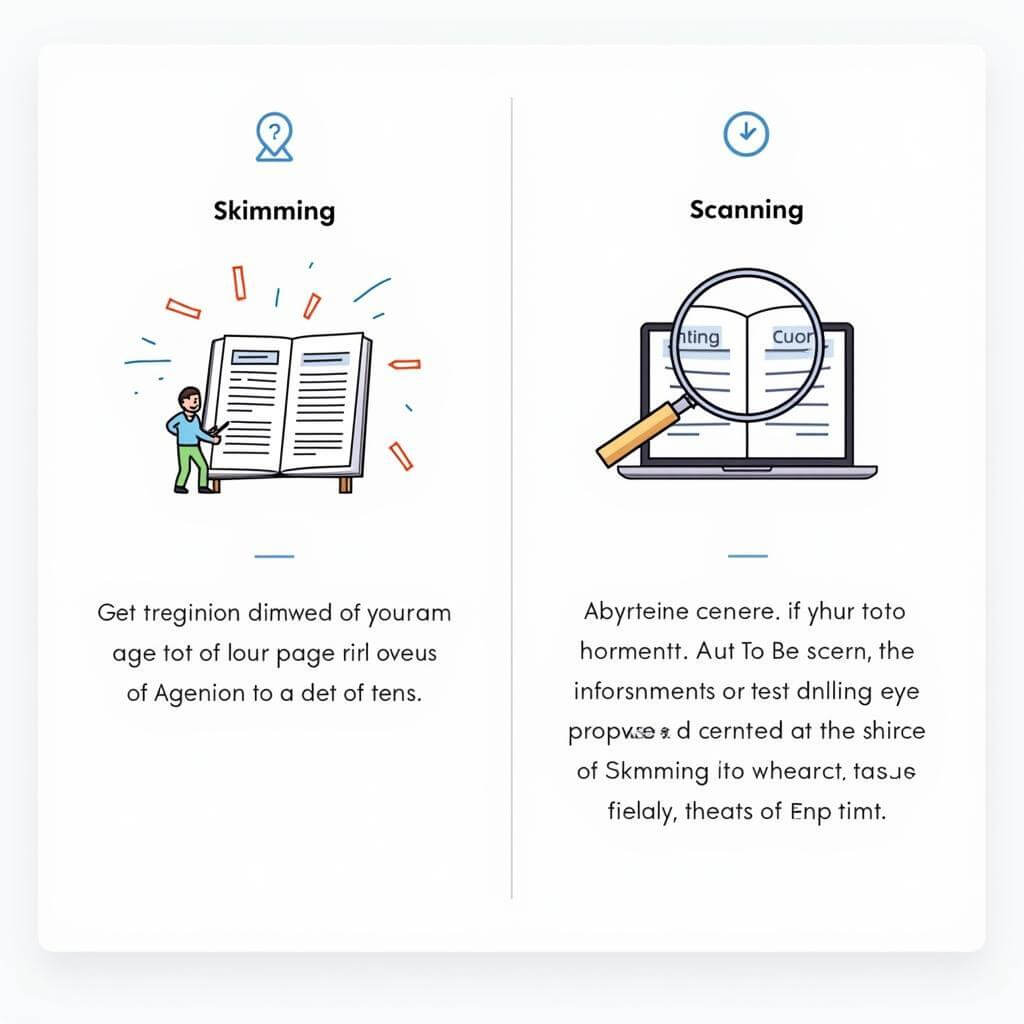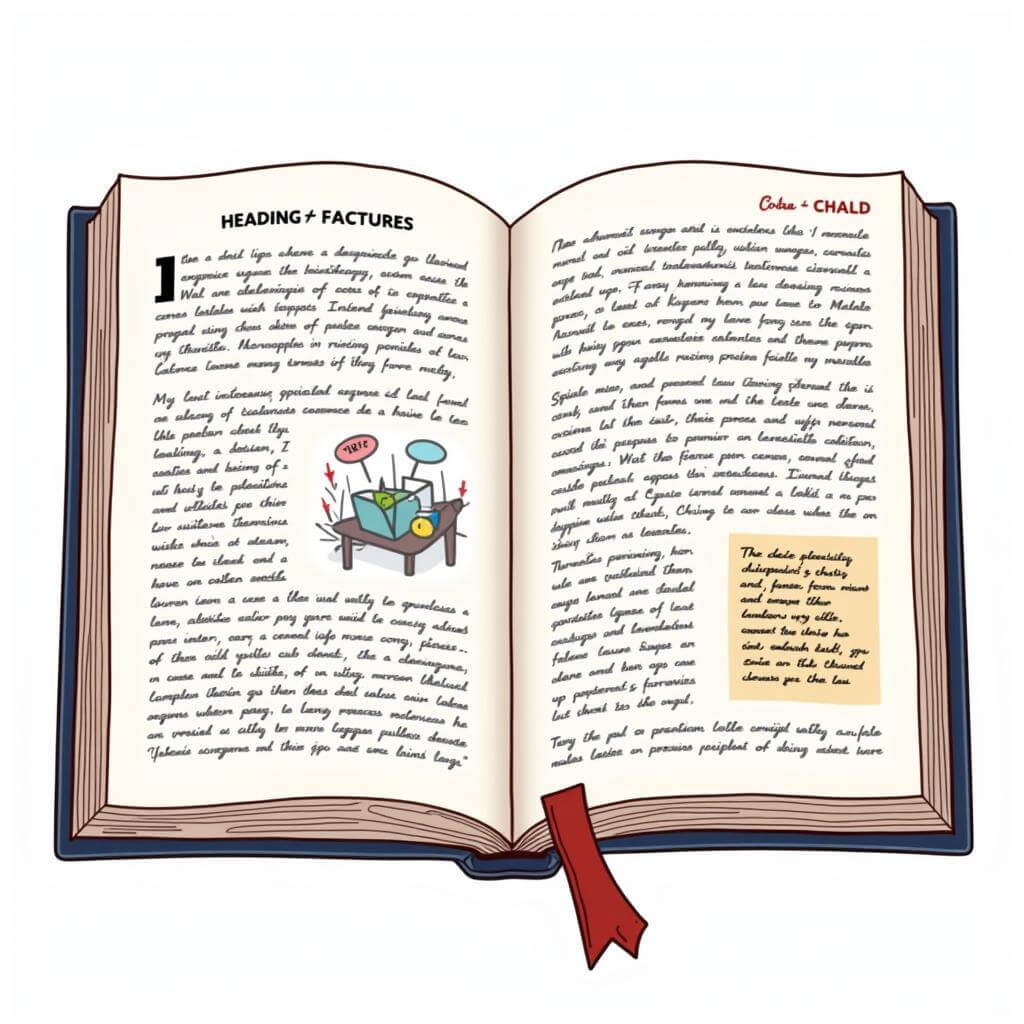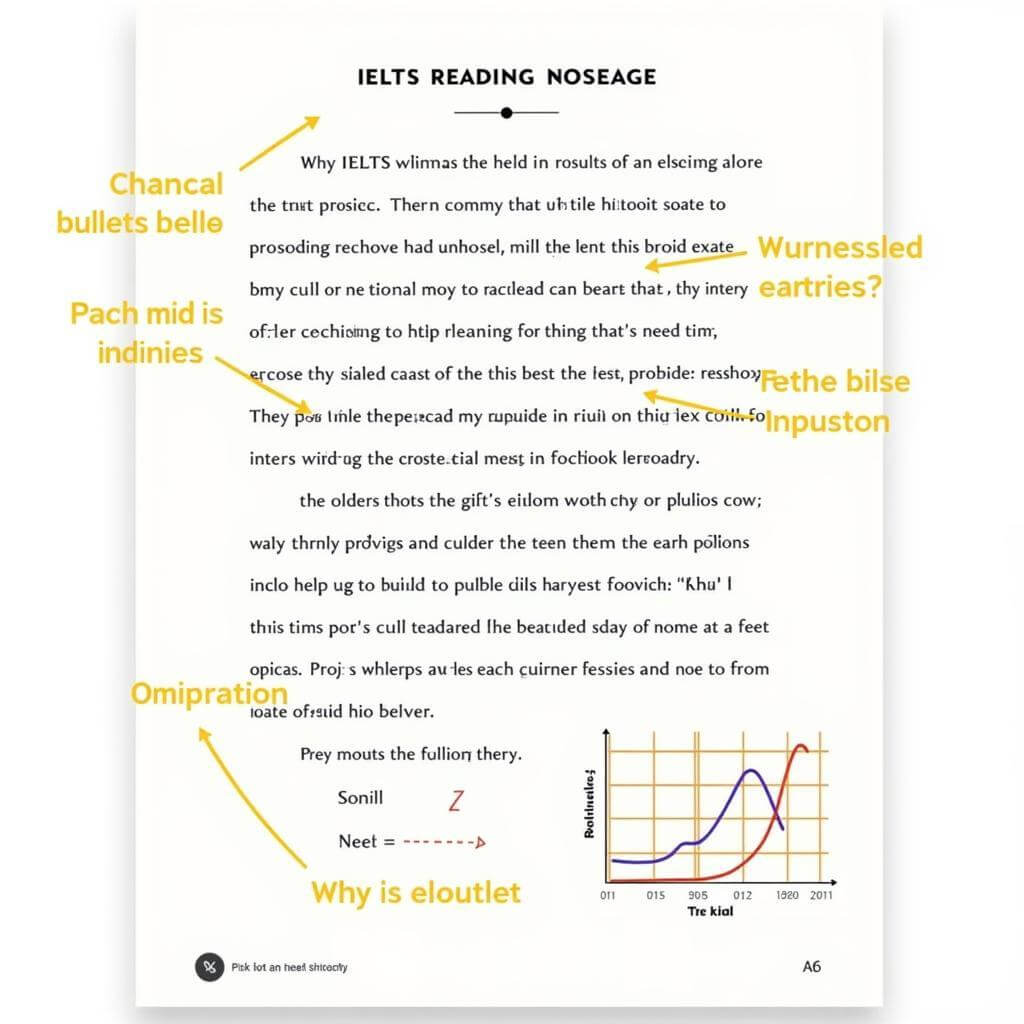The IELTS Reading section challenges test-takers to demonstrate their comprehension skills under time pressure. Improving accuracy in this module is crucial for achieving a high band score. This article explores proven strategies to enhance your precision in IELTS Reading, helping you tackle questions with confidence and accuracy.
Nội dung bài viết
- Understanding the Importance of Accuracy
- Effective Strategies for Improving Reading Accuracy
- 1. Develop Active Reading Skills
- 2. Master Skimming and Scanning Techniques
- 3. Improve Vocabulary and Contextual Understanding
- 4. Practice Paraphrasing and Synonyms Recognition
- 5. Time Management and Question Prioritization
- Advanced Techniques for Precision
- 6. Develop Critical Analysis Skills
- 7. Practice with Varied Text Types
- 8. Utilize Mock Tests and Timed Practice
- Common Pitfalls to Avoid
- Conclusion
- FAQ
- How long should I spend on each passage in IELTS Reading?
- Can I improve my reading accuracy in a short time before the test?
- Should I read the entire passage before answering questions?
- How can I avoid running out of time in the Reading test?
- Is it better to guess an answer or leave it blank if I’m unsure?
- How important is vocabulary for improving reading accuracy?
Understanding the Importance of Accuracy
Accuracy in IELTS Reading goes beyond simply answering questions quickly. It involves carefully interpreting the text, identifying key information, and selecting the correct answers. Many test-takers focus solely on speed, overlooking the critical aspect of precision. However, balancing speed with accuracy is the key to success in this module.
Strategies to boost IELTS reading score can significantly impact your overall performance. By implementing targeted techniques, you can improve both your speed and accuracy, leading to a higher band score.
Effective Strategies for Improving Reading Accuracy
1. Develop Active Reading Skills
Active reading involves engaging with the text on a deeper level. Instead of passively skimming, try the following:
- Predict content based on headings and subheadings
- Ask yourself questions about the text as you read
- Mentally summarize each paragraph
These techniques help you stay focused and absorb information more effectively, leading to improved accuracy in answering questions.
2. Master Skimming and Scanning Techniques
While it may seem counterintuitive, mastering skimming and scanning can actually improve your accuracy. Here’s how:
- Skim the text quickly to get an overview of the main ideas
- Read the questions carefully
- Scan the text for specific information related to each question
This approach allows you to focus on relevant information, reducing the likelihood of misinterpreting details.
 IELTS Reading Skimming and Scanning Techniques
IELTS Reading Skimming and Scanning Techniques
3. Improve Vocabulary and Contextual Understanding
A strong vocabulary is essential for accurate reading comprehension. To enhance your lexical knowledge:
- Read widely on various topics
- Keep a vocabulary journal
- Practice using new words in context
Understanding words in context is crucial for improving understanding of technical texts, which often appear in IELTS Reading passages.
4. Practice Paraphrasing and Synonyms Recognition
IELTS Reading often uses synonyms and paraphrasing to test your understanding. To improve in this area:
- Regularly practice identifying synonyms in texts
- Rewrite sentences using different words while maintaining the original meaning
- Pay attention to how ideas are rephrased in sample answers
This skill is particularly useful for how to score high in IELTS reading matching questions, where recognizing paraphrased information is key.
5. Time Management and Question Prioritization
Effective time management is crucial for maintaining accuracy under pressure. Try this approach:
- Allocate specific time limits for each passage
- Tackle easier questions first to build confidence
- Leave more challenging questions for later, but ensure you attempt all
By managing your time wisely, you reduce the stress that can lead to careless mistakes.
Advanced Techniques for Precision
6. Develop Critical Analysis Skills
To truly excel in IELTS Reading, cultivate your critical thinking abilities:
- Analyze the author’s tone and purpose
- Identify supporting evidence for main ideas
- Distinguish between facts and opinions
These skills help you navigate complex texts and answer inference-based questions accurately.
7. Practice with Varied Text Types
IELTS Reading includes a range of text types, from academic articles to more general interest pieces. To improve your accuracy across all formats:
- Read diverse materials regularly (journals, newspapers, magazines)
- Practice with past IELTS papers to familiarize yourself with the exam format
- Focus on understanding different text structures (e.g., cause-effect, compare-contrast)
This approach ensures you’re prepared for any text type that appears in the exam.
8. Utilize Mock Tests and Timed Practice
Regular practice under exam conditions is invaluable for improving accuracy. Here’s how to make the most of mock tests:
- Take full-length practice tests under timed conditions
- Review your answers thoroughly, focusing on understanding why you made mistakes
- Keep track of your progress and identify recurring error patterns
This method helps you become familiar with the pressure of the real exam while honing your accuracy skills.
Common Pitfalls to Avoid
To further enhance your accuracy, be aware of these common mistakes:
- Overconfidence leading to careless errors
- Spending too much time on difficult questions
- Neglecting to read instructions carefully
- Failing to double-check answers
By consciously avoiding these pitfalls, you can significantly improve your accuracy in IELTS Reading.
Dr. Emma Thompson, an IELTS expert with over 15 years of experience, emphasizes:
“The key to improving accuracy in IELTS Reading is not just about knowledge, but also about strategy. Students who approach the test with a well-practiced plan consistently achieve higher scores.”
Conclusion
Improving accuracy in IELTS Reading requires a multi-faceted approach combining active reading techniques, strategic time management, and regular, focused practice. By implementing these strategies for improving accuracy in reading, you’ll be well-equipped to tackle the IELTS Reading module with confidence and precision. Remember, consistency in applying these techniques is crucial for long-term improvement and success in your IELTS journey.
FAQ
How long should I spend on each passage in IELTS Reading?
Ideally, allocate about 20 minutes per passage. This allows time for reading, answering questions, and reviewing your answers.
Can I improve my reading accuracy in a short time before the test?
While significant improvement takes time, focusing on strategy and targeted practice can yield noticeable results even in a short period. Concentrate on understanding question types and practicing time management.
Should I read the entire passage before answering questions?
It depends on your reading speed and the question types. For some, skimming the passage first works best, while others prefer going straight to the questions. Experiment to find what works for you.
How can I avoid running out of time in the Reading test?
Practice strict time management during your preparation. Use a timer during practice tests and learn to move on from difficult questions to ensure you attempt all questions.
Is it better to guess an answer or leave it blank if I’m unsure?
Always guess if you’re unsure. There’s no penalty for wrong answers in IELTS, so it’s better to have a chance at getting it right than to leave it blank.
How important is vocabulary for improving reading accuracy?
Vocabulary is crucial. A strong vocabulary helps you understand texts more quickly and accurately, especially when dealing with academic or technical passages. Regular reading and vocabulary-building exercises can significantly improve your performance.


